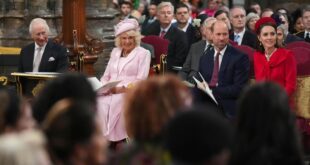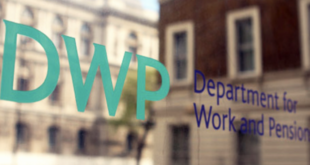An economist has torn right through the media propaganda suggesting Labour’s fully-costed 2019 manifesto is somehow ‘extreme‘.
Award-winning economist Ann Pettifor insists in a video that:
This manifesto is just common-sense economics.
And she’s someone we should listen to. Because she’s “one of the few economists that predicted the great financial crisis”.
Labour’s fully costed manifesto is based on common sense economics as @AnnPettifor explains. pic.twitter.com/oCNWIto6pZ
— John McDonnell MP (@johnmcdonnellMP) November 22, 2019
Labour is challenging the economic extremism of the last four decades
Jeremy Corbyn’s Labour has promoted moderate centre-left policies since he became leader. And if they seem radical, that’s only because decades of right-wing ideological dominance have created extreme inequality in Britain. The share of national income that the UK’s ultra-rich receive, for example, has increased significantly since the 1980s. Today, people in the top1% of are also “disproportionately male, middle-aged and London-based”.
Such extreme inequality is disastrous for numerous reasons. But sadly, it’s become the norm.
By asking the top 5% of earners in the UK to pay more tax, Labour is simply seeking to address the immense inequality that Tory and Tory–lite governments have brought to the country. And the recent years of austerity-related deaths, increasing foodbank use, child poverty in working households, and abuses of disabled people’s rights only strengthen the need for systemic change.
Britain’s billionaires – who firmly back the Conservative Party because it serves their interests – want to convince people that Labour’s manifesto is extreme. But ordinary people should fight back. Because increasing inequality and the increasing power of the ultra-rich have been disastrous. As Oxfam’s Max Lawson has insisted, the very existence of billionaires is “a sign of economic failure” and ‘undermines democracy’. That’s why it’s right for Corbyn to challenge this reality.
Labour’s manifesto simply makes economic sense
The Labour Party’s promise of democratic public control of vital services – like healthcare, education, energy, and transport – is popular. And it makes economic sense.
The nationalisation of water, energy and Royal Mail would *save* UK households £7.8 BILLION a year & pay for itself within 7 years, according to Greenwich Uni’s Public Service International Research Unit.
Now who to believe…the mouth frothing right-wing media, or academics 🤔
— Rachael Swindon (@Rachael_Swindon) November 22, 2019
And as award-winning economist Mariana Mazzucato has pointed out, Labour’s proposed spending increases are still lower than in other European countries:
“Even if you just look at the total amount that Labour currently wants to increase the spending, it would basically bring us still to levels that are lower than France, Norway, and Sweden.”
– Economist Mariana Mazzucato on Labour’s spending plans 🌹
— Labour’s Black PLP #RegisterToVote (@LaboursBlackPLP) November 21, 2019
Sadly, that’s a reality that’s not receiving as much media prominence as it should:
BBC propaganda in full effect.
8 mins on Labour “spend spend spend,biggest spending in peacetime “
3 seconds at the end which then said…
“But pretty standard spending for Europe”.
Including Germany, wealthier than UK and France and Italy around the same level 🤷🏽♂️
— Stan Collymore (@StanCollymore) November 21, 2019
And as former England footballer Stan Collymore also pointed out, this media “propaganda” is dangerous:
If any working class man or woman who has a modest home and income, who uses the NHS and public services think that Johnson or Farage is for them, and votes for them, is engaging in an act of self harm.
People need to read manifestos, not the S**or Mail for a change. https://t.co/lScZHFXUzH
— Stan Collymore (@StanCollymore) November 21, 2019
Remember: the Conservatives are *not* good with the economy
The Conservative-led governments since 2010, meanwhile, have almost doubled the UK’s debt, which now stands at £1.8tn. And Tory borrowing rose in October to the highest level since 2014. But that’s no surprise. Because as economist Richard Murphy has pointed out, the Tories are “always the party that borrows most”. Looking at all governments since 1946, he says:
In current prices Labour has borrowed approximately £28 billion a year and the Tories £33.6 billion.
Award-winning economist Simon Wren-Lewis has also highlighted that the economy in general was much stronger under the last Labour government than it has been since 2010, stressing that:
The economy under a Conservative chancellor since 2010 has been weak, not strong.
So in short, while Labour has a “common-sense” plan to end four decades of economic extremism, the Tories’ poor record in power is clear. Don’t take our word for it, though. Just listen to the economists.
Featured image via John McDonnell and Channel 4 News



